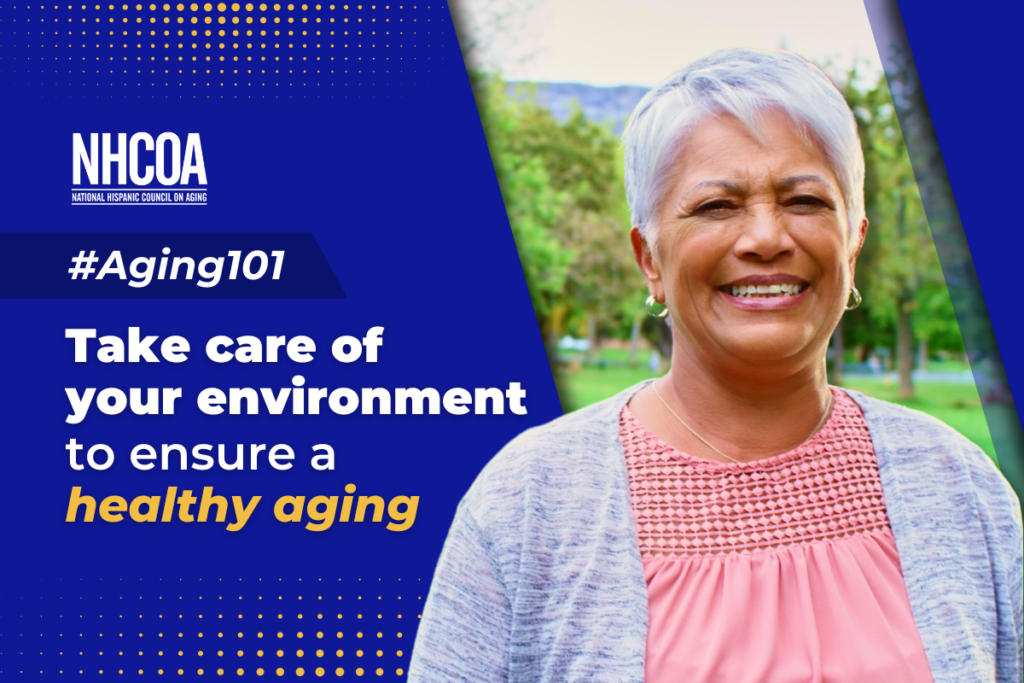
We all know that our habits have a great impact on our long-term health. These habits are developed through our daily environments: social, familiar, physical and work. We recommend you be aware of how we develop in each of these environments to ensure healthy aging and, therefore, delay the dependence on care.
Supportive physical, political, social, economic, family and cultural environments make it easier for people to perform activities that are important to them, despite the loss of certain faculties. It also enhances decision making, increases motivation to remain active and to participate in one’s environment.
When talking about an enabling environment, better spaces and healthy habits, we are also talking about quality of life which is made up of a series of elements that are defined as objective, subjective and social aspects, according to the World Health Organization (WHO).
The objective aspects are those related to the material conditions of the older adult, such as the level of income, housing, food, clothing, social security and education. These elements are part of human rights since they are indispensable for the satisfaction of the basic needs of each person.
On the other hand, the subjective aspects are related to psychic elements of the person such as self-esteem, self-concept, intimacy, emotional expression and perceived health. These elements are subjective because they are constructed based on the person’s appreciation and judgment of themselves, their sense of life and their place in the world.
There are also social aspects, which are formed by public policies, social programs, institutional services, non-contributory welfare, as well as any other service provided by the government through its institutions to comprehensively meet the needs of older adults.
As a whole, these three aspects determine a person’s quality of life and are directly related to their environment. As a result, they directly condition the enjoyment of healthy and dignified aging.
Several studies conducted around the world indicate that older adults express that having social relationships and friendships, being active and participating in the community, being independent, enjoying good physical, mental and emotional health, having a positive attitude towards life, having social services and a good economic income positively determine their quality of life. These aspects are usually a commitment of each individual to provide for themselves.
It is important to mention that quality of life is an individual, heterogeneous, and subjective experience. This means that each person experiences it differently and it can manifest itself in different ways. Also, the aspects that are considered essential to enjoy a quality of life may vary. However, among all the aspects that determine the quality of life, there are some that can be considered indisputable.
Among these indisputable aspects, we can mention the government’s commitment to creating the necessary policies to ensure safe and conducive spaces for older adults and dignified retirements that allow older adults to count on economic security that assures them a better quality of life. It is the government’s responsibility to guarantee the full exercise of human rights throughout the lifetime, in order to ease the transition in aging.
It is the task of each person to analyze the objective, subjective and social aspects that determine the quality of life, in order to identify if any of the elements are undermined and to generate strategies to strengthen them and allow the person to have an individual, social and economically productive life through aging.
References:

Recent Comments